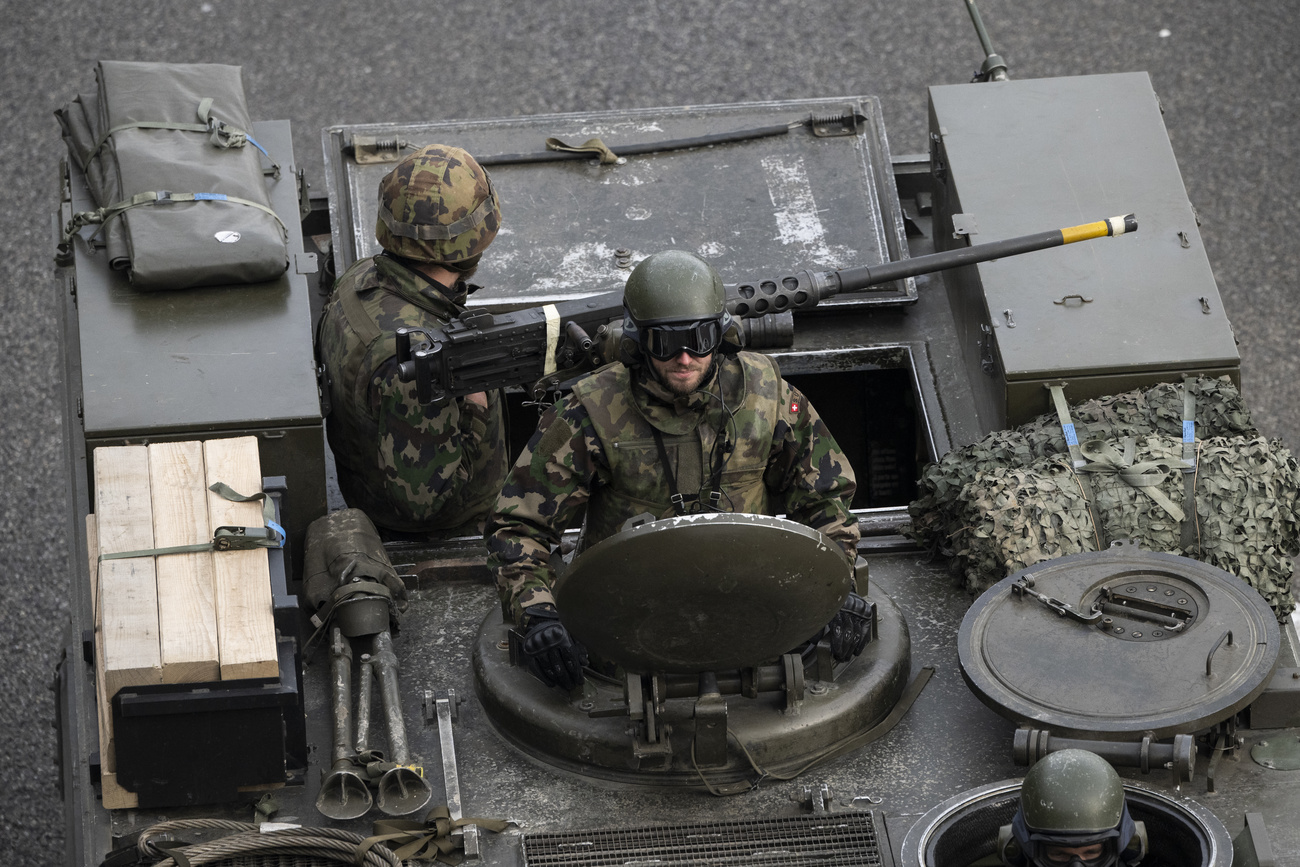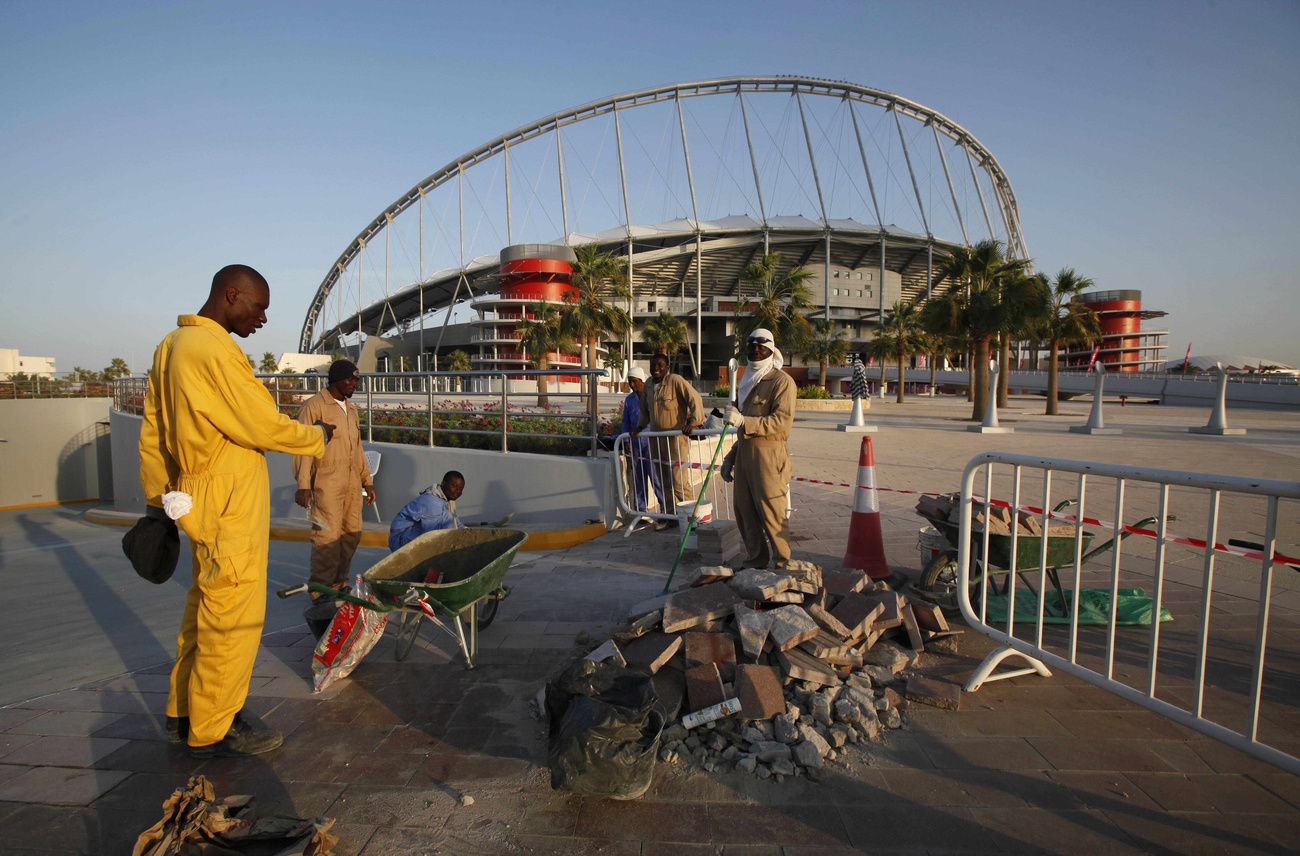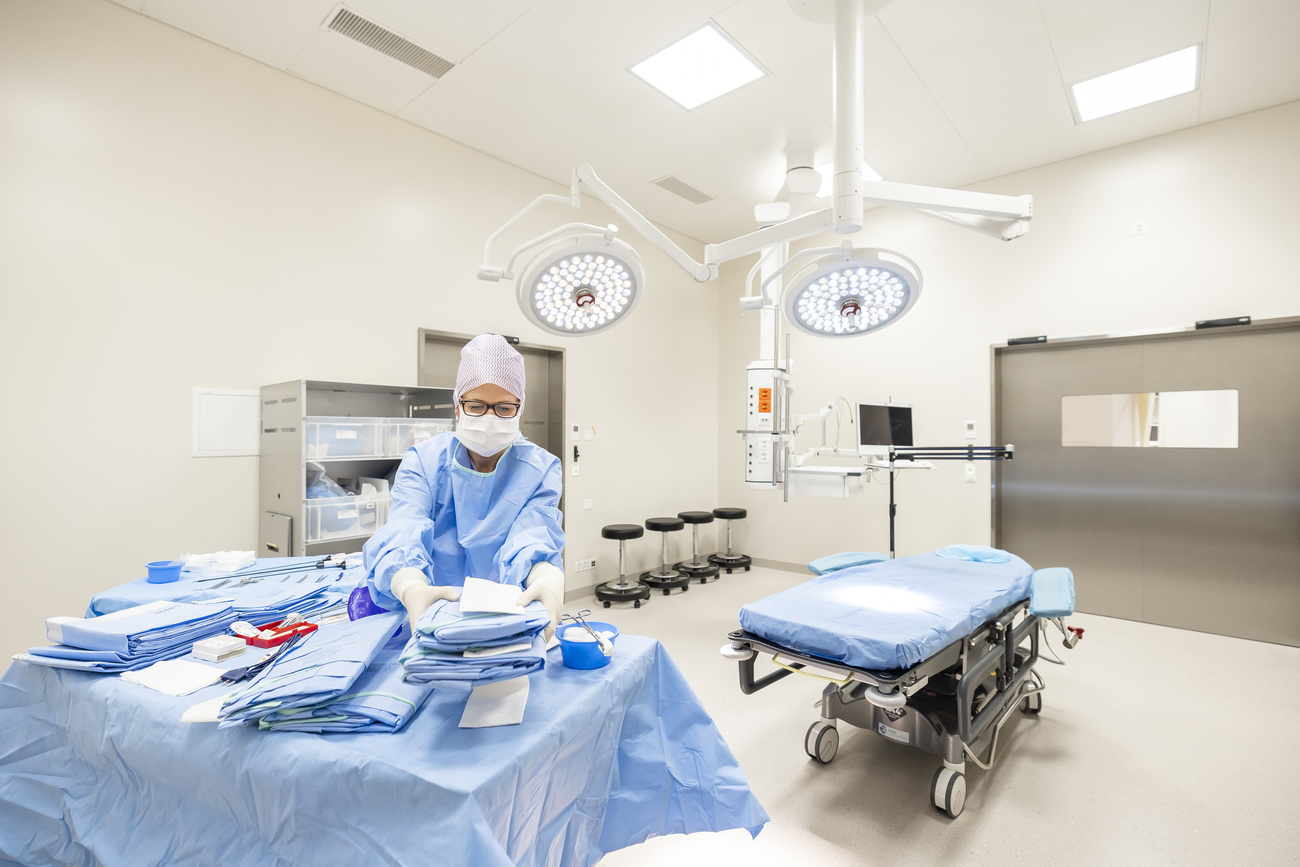Is the Swiss weapons industry in danger of misfiring?

Global sales of Swiss-made war materiel fell 27% last year despite a war raging in Europe and pledges by many countries to increase defence spending. Why are sales falling for Swiss weapons manufacturers just as demand is picking up?
Lobby groups for the industry are sounding the alarm bells. They complain that Switzerland’s strict application of neutrality is seriously damaging the economic prospects of companies.
Do you want to read our weekly top stories? Subscribe here.
Switzerland demands that countries do not re-export Swiss-made armaments to Ukraine. The German Rheinmetall company has responded by switching production of munitions from Switzerland to Germany.
“Some companies have lost orders because of concerns about the Swiss regulations, while others are considering investing less here in the future and even relocating away from Switzerland,” a spokesperson for the manufacturing industry group Swissmem told SWI swissinfo.ch.
“The Netherlands and Denmark have decided to stop importing defence goods from Switzerland due to restrictions on further exports. Relations with other countries have also come under pressure because they cannot understand Switzerland’s stance.”
Fierce politics
But pressure groups, such as the ‘Group for a Switzerland without an Army’ (GSoA) accuse the weapons industry of crying wolf to squeeze out more liberal conditions for the strictly controlled market. Last year, parliament voted to relax war materiel export restrictions in exceptional cases if deals are judged to serve the best interests of Swiss foreign or security policy.

More
The controversial lucrative business of Swiss arms deals
Politicians are fiercely debating another concession for the armaments industry. The proposal is to allow countries with similar principles to Switzerland to re-export Swiss-made weapons to war zones.
“It is worrying how quickly politicians react when the arms lobby complains,” GSoA secretary Jonas Heeb said in a press release. “This puts profits above human lives.”
War materiels comprise just 0.18% of all Swiss exports. Sales fell from a record CHF955 million ($1.08 billion) in 2022 to CHF696.8 million last year, according to the State Secretariat for Economic Affairs (SECO).
But SECO also pointed out that 2022 saw unusually large orders from Qatar, which was hosting the football World Cup, and from Denmark.
Despite some peaks and troughs in individual years, Swiss war materiel sales have steadily increased from the CHF214 million sales recorded in 2000 (see graph).
SECO also issued fresh permits for arms deals worth CHF1.03 billion last year, which is nearly CHF100 million more than in 2022. The value of these permits is only converted into export sales once the deals have been completed, which usually happens in subsequent years.
This led the Blick newspaper to declare that “the prospects for the Swiss arms industry no longer seem so bleak”. The new permits are a “clear sign that export figures are likely to rise again”.
Philippe Zahno, spokesperson for defence companies in western Switzerland (the French-speaking Swiss Group for Defence and Security Equipment), disagrees with this assessment.
“Some other countries no longer trust that Switzerland wants to supply war materiel or even if our companies will be able to make deliveries in future,” he told SWI swissinfo.ch “They are starting to look elsewhere for suppliers. It is far from an ideal situation.”
Zahno fears that armament manufacturers will leave Switzerland if neutrality impairs their ability to sell globally.
SECO refused to be drawn on the future prospects of the defence industry. While aware that some countries are turning their backs on Swiss companies, officials pointed out that the impact on sales will only be known in the years ahead.
According to a study by economists at the BAK Basel research institute, the Swiss defence industry contributed around CHF2.3 billion to the Swiss economy in 2021.
The industry supports more than 14,000 jobs and contributed CHF145 million in taxes.
Swissmem calculated there are 120 companies directly involved in the manufacture of weapons, munitions, military vehicles and other equipment. They are supported by around 3,000 suppliers in Switzerland.
Swiss companies exported war materiel to 58 countries in 2023, according to SECO.
Some of the biggest Swiss defence companies are now in foreign hands.
For example Mowag, which makes military vehicles, was bought by the United States defence contractor General Dynamics in 2003. Anti-aircraft gun manufacturer Oerlikon-Contraves was bought by German firm Rheinmetall in 1999 and was later renamed Rheinmettall Air Defence.
State-owned company Ruag has been steadily divesting its armaments units to focus on the Space industry. Sales to military customers accounted for 4% of all net sales in 2023, compared to 13% in 2022.
More
Edited by Reto Gysi/sb

In compliance with the JTI standards
More: SWI swissinfo.ch certified by the Journalism Trust Initiative










You can find an overview of ongoing debates with our journalists here . Please join us!
If you want to start a conversation about a topic raised in this article or want to report factual errors, email us at english@swissinfo.ch.